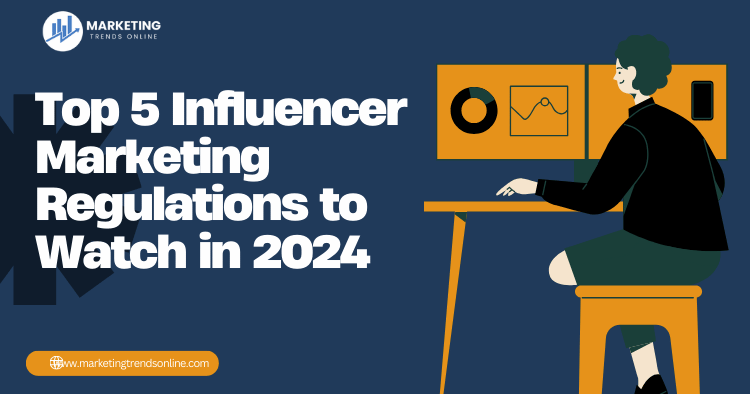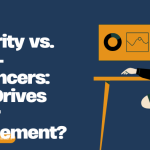Table of Contents
- Introduction
- 1. Disclosure Requirements
- 2. FTC Guidelines and Updates
- 3. Social Media Platform Policies
- 4. Data Privacy Laws
- 5. International Regulations
- Conclusion
- FAQs
Introduction
As influencer marketing continues to grow, so do the regulations that govern it. With 2024 just around the corner, brands and influencers alike must stay informed about emerging trends in compliance. This article outlines the top five influencer marketing regulations to keep an eye on this year. Whether you’re a seasoned marketer or just dipping your toes into influencer partnerships, understanding these regulations is crucial for maintaining transparency and avoiding penalties.
“Staying compliant not only protects your brand’s reputation but also fosters a more transparent environment for consumers.”
1. Disclosure Requirements
One of the most critical aspects of influencer marketing is transparency. In 2024, we expect an increased emphasis on disclosure requirements. Influencers must clearly communicate when content is sponsored or when they receive compensation for their endorsements.
Key Points:
- Clear Language: Phrases like “#ad” or “Paid partnership” should be prominently displayed. Simply including them in hashtags or at the end of a caption may not be sufficient.
- Visual Placement: Ensure disclosures are visible in images and videos. For instance, overlay disclosures in video content rather than relying solely on captions.
| Best Practices for Disclosure |
|---|
| Use clear language like “Sponsored” or “Paid partnership” |
| Place disclosures at the beginning of posts |
| Use bold text or eye-catching colors for visibility |
For more detailed information on disclosure requirements, check out the FTC’s guidelines.
“In 2024, expect an increased emphasis on clarity and visibility in disclosures.”
2. FTC Guidelines and Updates
The Federal Trade Commission (FTC) continues to refine its guidelines for influencer marketing. In 2024, we can expect more stringent enforcement of these rules.
Key Points:
- Content Review: Brands should review their influencer content to ensure compliance. This includes checking for proper disclosures and ensuring that claims made are truthful and substantiated.
- Training Influencers: Brands can conduct training sessions for influencers to help them understand and adhere to FTC regulations.
In a recent update, the FTC advised that influencers could be held liable for misleading claims, even if they are not the ones making them. This means that both brands and influencers must work together to create compliant content.
For more insights into the evolving landscape, consider exploring the top 10 content marketing tools to boost strategy in 2024 as they can assist with compliance monitoring.
“Both brands and influencers share the responsibility for compliance in influencer marketing.”
3. Social Media Platform Policies
Beyond federal regulations, social media platforms have their own set of rules and guidelines that influencers must follow. Platforms like Instagram, TikTok, and YouTube are updating their policies to promote transparency and trust.
Key Points:
- Updated Policies: Platforms may require more explicit disclosures, such as tagging a brand or using their specific hashtags.
- Algorithm Changes: Non-compliance could affect content visibility, as platforms may prioritize posts that adhere to their guidelines.
To stay updated on platform-specific regulations, visit the official pages of Instagram’s Brand Safety or TikTok’s Community Guidelines. Moreover, understanding top 7 social media marketing trends shaping 2025 can provide insights into how platforms are evolving.
“Social media platforms are increasingly prioritizing transparency and compliance in influencer content.”
4. Data Privacy Laws
With the rise of data privacy concerns globally, regulations surrounding consumer data are becoming stricter. In 2024, influencers and brands must be aware of how they collect, store, and use consumer data.
Key Points:
- Compliance with GDPR and CCPA: If your audience includes EU residents or Californians, be sure to comply with GDPR and CCPA requirements. This includes obtaining consent before collecting personal data.
- Transparency in Data Use: Influencers should be forthright about how they plan to use any data collected from followers, particularly in targeted advertising campaigns.
For a deeper dive into data privacy laws, refer to the EU’s GDPR overview and the California Consumer Privacy Act (CCPA). Additionally, you can explore 10 game-changing trends in personalized email marketing for 2024 to understand how data privacy impacts email campaigns.
“Data privacy is not just a legal obligation; it’s a crucial element of consumer trust.”
5. International Regulations
As influencer marketing grows globally, brands and influencers must also understand international regulations. Different countries have varying standards that can impact how marketing is conducted.
Key Points:
- Country-Specific Guidelines: For instance, the UK’s Advertising Standards Authority (ASA) has specific guidelines that differ from those of the FTC.
- Cultural Sensitivity: Tailor your marketing strategies to fit cultural norms and regulations in different regions to avoid backlash.
Staying informed about international regulations is crucial for brands with a global reach. Resources like the International Advertising Bureau provide insights into best practices worldwide. For further context, look at top influencer collaboration trends shaping 2024 for insights on how to navigate international partnerships.
“Understanding international regulations is key for brands aiming for a global presence.”
Conclusion
As we move into 2024, it’s essential to stay updated on influencer marketing regulations. By understanding disclosure requirements, FTC guidelines, social media policies, data privacy laws, and international regulations, brands and influencers can work together to build trust and credibility.
“Proactive compliance is the best strategy to safeguard your brand and enhance consumer relationships.”
FAQs
Q: What are the penalties for not following influencer marketing regulations?
A: Penalties can range from fines to legal action, depending on the severity of the violation and the governing body enforcing the regulations.
Q: How can influencers ensure they are compliant with regulations?
A: Influencers should educate themselves about the guidelines set by governing bodies like the FTC, regularly review their content for compliance, and maintain open communication with brands.
Q: Are there any resources available for learning more about influencer marketing regulations?
A: Yes! Websites like the FTC, IAB, and industry blogs provide valuable insights and updates on regulations.
By being proactive and informed, you can ensure that your influencer marketing efforts are both effective and compliant in the year ahead.





